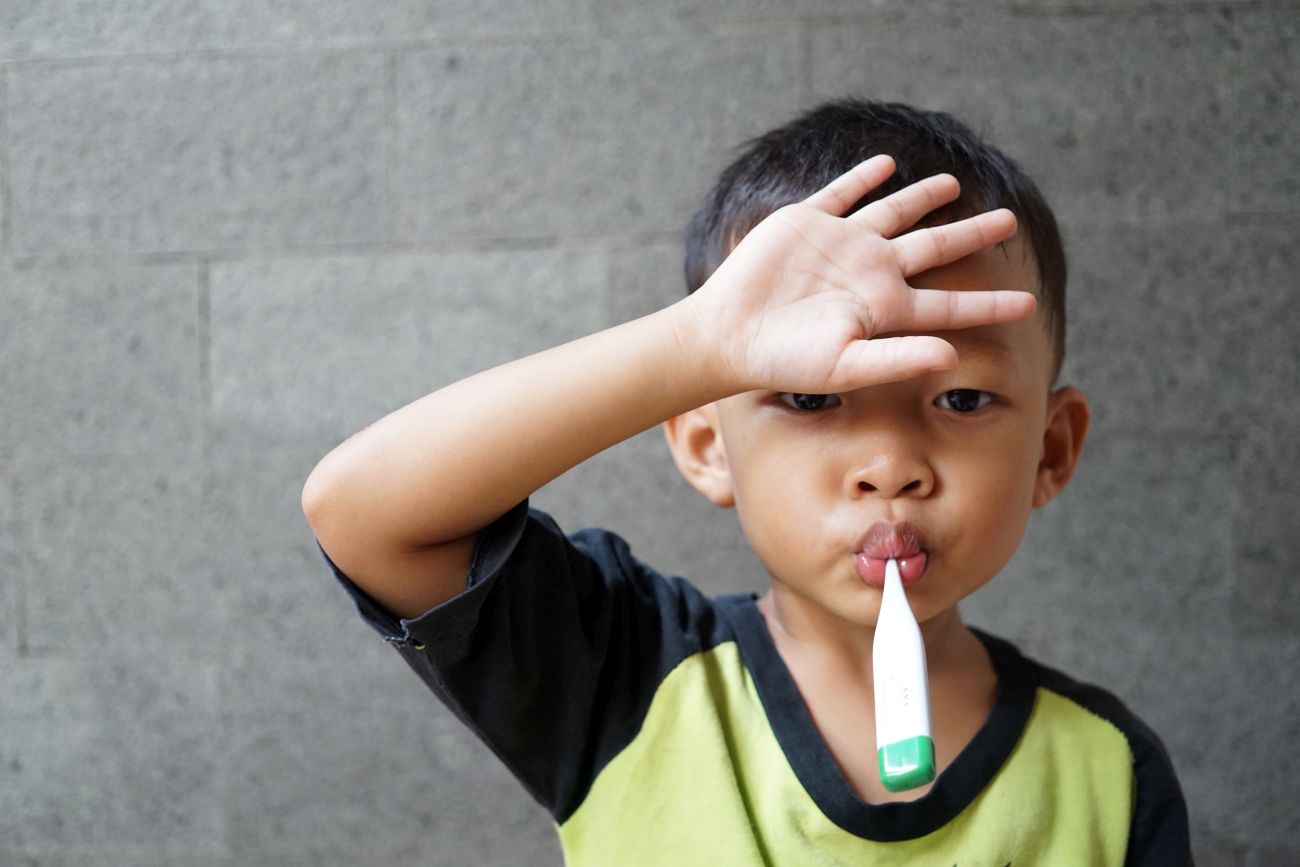What’s serious enough to keep your kid out of school? It’s a good question and one without any clear answers. Sending your clearly distressed child out of the door and onto the school bus can be a hard pill to swallow — especially if you’re unsure whether it’s safe to do so.
Today, we’re going to take a look at 10, sure-fire ways to tell if your child needs to take the day off.

1. Fever
It’s well understood that a fever isn’t something to mess with. If the thermometer reads at or above 100.4°F, then pulling them out of school is a safe bet.
A fever typically signifies that your child is fighting off an infection. The temporary increase in the temperature of the body plays a key role in helping your body fight off a number of infections and usually only last a day or two.
Just make sure that your child’s fever has been back to normal for a full 24 hours before you send her back to class.
2. Uncomfortable Pain
If your child tells you that they’re suffering from some sort of persistent and uncomfortable pain, pay attention to them. Earaches, stomach aches, headaches or body aches are often signs of a contagious flu.
At minimum, a child in pain will have difficulty concentrating in class and may be a distraction to the other students. Keeping them at home is a safe bet and a visit to the doctors may help too.
3. Persistent Cough or Sore Throat
Coughing can be distracting to other students and the teachers that have a job to do. However, when a persistent cough is paired with a sore throat, that’s grounds for a sick day.
Coughing is a common sign of a contagious viral infection. Therefore, it’s best that they’re kept away from the rest of their classmates until their cough clears up.
More than that, your child may need to be tested for the highly contagious illness, strep throat.
4. Irritated Eyes or Rashes
If you’ve ever suffered from eye irritation than you don’t need to be told how big of a distraction that it can be. In truth, it’s near impossible to focus on anything else — that goes double for your school-aged child. Plus, irritated eyes/rashes can be a symptom of something more serious.
Not only should a child experiencing eye irritation or a rash stay home for the day, but they should also visit their doctor to get checked out. Certain eye irritations, like pink eye, are highly contagious and require a proper diagnosis to help contain its spread.
5. Vomiting
Whether the illness requires medical intervention or not, a vomiting child should probably stay home from school.
Vomiting can mean that your child is contagious, but there’s more to it than that. A child that continues to vomit throughout the day is difficult for school staff to deal with — and that’s before even mentioning the various hygiene concerns.
6. Diarrhea
Just like vomiting, a child suffering from diarrhea should be kept at home. In fact, parents are advised to wait at least 24 hours after the last episode before considering a return to school.
Diarrhea makes it all but impossible for a child to focus on schoolwork. Plus, it can disrupt the entire class’s day.
7. Fatigue
Often associated with the common cold, fatigue can wreak havoc on a child’s ability to participate in the activities around them.
Nodding off at the desk is more likely to get them into trouble than it is to aid their scholastics. No, in the case of a fatigued child, it’s best if they stay home for the day, keep hydrated, and return to class only when they are back to 100 percent.
8. Irritability
Irritability is often the first sign that something is off. Trouble sitting still, moodiness, and lack of appetite are subtle clues that your child may need to sit the day out.
If you notice that your child is more irritable than normal, keep a watchful eye for more troubling symptoms as they present themselves. It could just be that your child is tired and restless, but it could mean that an illness is on the horizon.
9. Trouble Breathing
Trouble breathing, or respiratory distress, should be taken very seriously. In many cases, a trip to the doctor or emergency room may be necessary. You most certainly shouldn’t be sending your child off to class if they’re struggling to breathe.
Trouble breathing isn’t always an emergency, but it’s a valid reason to keep your child at home. It could be a sign of a chest infection or a blockage in the airway.
Consult your doctor if you notice that your child is struggling to breathe.
10. Appearance
Don’t underestimate the eye-test. You know your child better than they know themselves. Use that knowledge and experience to determine if your child’s energy levels are off, if they’re paler than usual, or if their lethargic and moody.
If something is off with your child, you’ll most likely be the first to know. Don’t be afraid to pull your child from school if you feel that they need some more recovery time at home.


